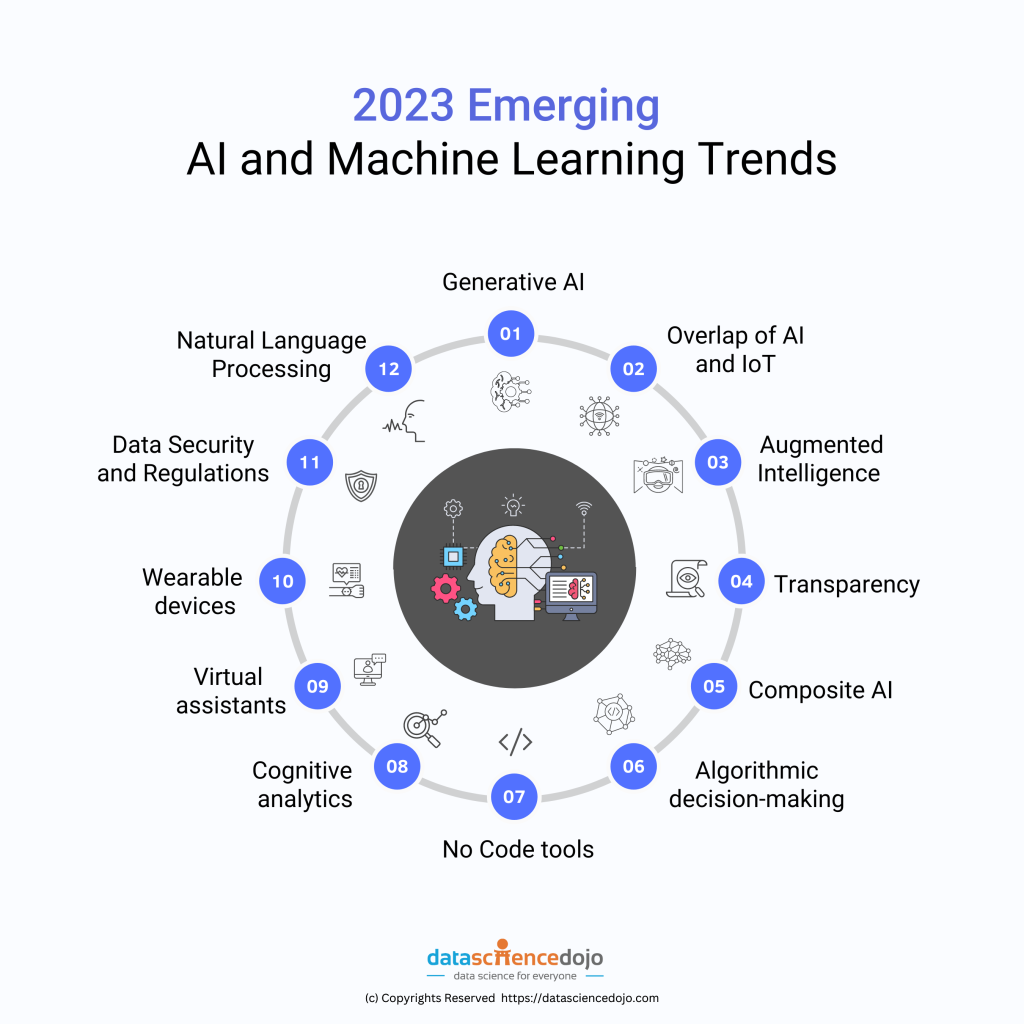As we delve into the Future Trends In Artificial Intelligence, it becomes increasingly clear that AI is not just a passing trend but a transformative force reshaping our world. With advancements in machine learning, natural language processing, and robotics, the potential applications of AI are vast and varied. This article will explore the key trends that are set to define the future of artificial intelligence, including ethical considerations, automation, and the integration of AI in everyday life.
In the following sections, we will examine how AI is revolutionizing industries such as healthcare, finance, and transportation. You will learn about the innovative technologies that are driving these changes and the implications they hold for businesses and consumers alike. Additionally, we will discuss the importance of ethical AI and the need for responsible development to ensure that these technologies benefit society as a whole.
Stay with us as we uncover the exciting possibilities that lie ahead in the realm of artificial intelligence. Whether you are a tech enthusiast, a business leader, or simply curious about the future, this article promises to provide valuable insights and provoke thought on how AI will continue to evolve and impact our lives. Join us on this journey into the future of AI and discover what trends you should be aware of!
Enhanced Natural Language Processing (NLP)
Natural Language Processing (NLP) is set to undergo significant advancements in the coming years. With the integration of deep learning techniques, AI systems will become increasingly adept at understanding and generating human language. This evolution will enable more sophisticated chatbots, virtual assistants, and translation services, making human-computer interaction more seamless and intuitive.
As NLP technology improves, we can expect AI to better grasp context, sentiment, and nuances in language. This will not only enhance user experience but also open new avenues for applications in fields such as customer service, content creation, and even mental health support. The ability to analyze large volumes of text data will empower businesses to derive insights and make data-driven decisions more effectively.
AI in Healthcare
The healthcare sector is poised to benefit immensely from AI advancements. From predictive analytics to personalized medicine, AI technologies are transforming how healthcare providers diagnose and treat patients. Machine learning algorithms can analyze medical data to identify patterns and predict health outcomes, leading to earlier interventions and improved patient care.
Moreover, AI-driven tools are being developed to assist in drug discovery, reducing the time and cost associated with bringing new medications to market. As AI continues to evolve, we can anticipate a future where healthcare is more proactive, personalized, and efficient, ultimately leading to better health outcomes for patients worldwide.
Autonomous Systems and Robotics
Autonomous systems, including self-driving cars and drones, are at the forefront of AI innovation. As technology advances, we will see increased reliability and safety in these systems, making them more viable for everyday use. The integration of AI with robotics will enable machines to perform complex tasks in various industries, from manufacturing to logistics.
In addition, the development of collaborative robots, or cobots, will enhance human-robot interaction, allowing for safer and more efficient work environments. As these technologies mature, we can expect to see a significant shift in how industries operate, with automation playing a crucial role in productivity and efficiency.
AI Ethics and Regulation
As AI technologies become more pervasive, the need for ethical guidelines and regulations is becoming increasingly important. Issues such as data privacy, algorithmic bias, and accountability are at the forefront of discussions surrounding AI development. Stakeholders, including governments, organizations, and researchers, are working to establish frameworks that ensure AI is developed and used responsibly.
Future trends will likely include the implementation of stricter regulations to govern AI applications, particularly in sensitive areas like finance, healthcare, and law enforcement. By addressing ethical concerns proactively, we can foster public trust in AI technologies and ensure that their benefits are realized without compromising individual rights or societal values.
AI and the Future of Work
The impact of AI on the workforce is a topic of great interest as automation continues to reshape job markets. While some fear job displacement, others see AI as a tool that can augment human capabilities and create new opportunities. The future of work will likely involve a collaboration between humans and AI, where routine tasks are automated, allowing workers to focus on more complex and creative endeavors.
Training and reskilling will be essential as industries adapt to these changes. Organizations will need to invest in workforce development to ensure employees are equipped with the skills necessary to thrive in an AI-driven environment. By embracing this transformation, businesses can harness the full potential of AI while fostering a more innovative and adaptable workforce.
| Trend | Description |
|---|---|
| Explainable AI (XAI) | As AI systems become more complex, the need for transparency and understanding of AI decision-making processes will grow. XAI aims to make AI outputs more interpretable for users. |
| AI Ethics and Governance | With the increasing use of AI, ethical considerations and governance frameworks will be essential to ensure responsible AI deployment, addressing issues like bias, privacy, and accountability. |
| AI in Healthcare | AI will continue to revolutionize healthcare through improved diagnostics, personalized medicine, and predictive analytics, enhancing patient care and operational efficiency. |
| Natural Language Processing (NLP) Advancements | Improvements in NLP will enable more sophisticated interactions between humans and machines, leading to better virtual assistants, chatbots, and language translation services. |
| AI and Automation | Automation powered by AI will transform industries by streamlining processes, reducing costs, and increasing productivity, while also raising concerns about job displacement. |
| AI in Cybersecurity | AI will play a crucial role in enhancing cybersecurity measures by detecting threats in real-time, automating responses, and predicting potential vulnerabilities. |
| Edge AI | Processing data on local devices (edge computing) will reduce latency and bandwidth usage, enabling faster decision-making and real-time applications in various sectors. |
| AI for Climate Change | AI technologies will be leveraged to address climate change challenges, optimizing energy consumption, improving resource management, and modeling environmental impacts. |
| Human-AI Collaboration | The future will see more collaborative systems where humans and AI work together, enhancing creativity, decision-making, and problem-solving capabilities. |



